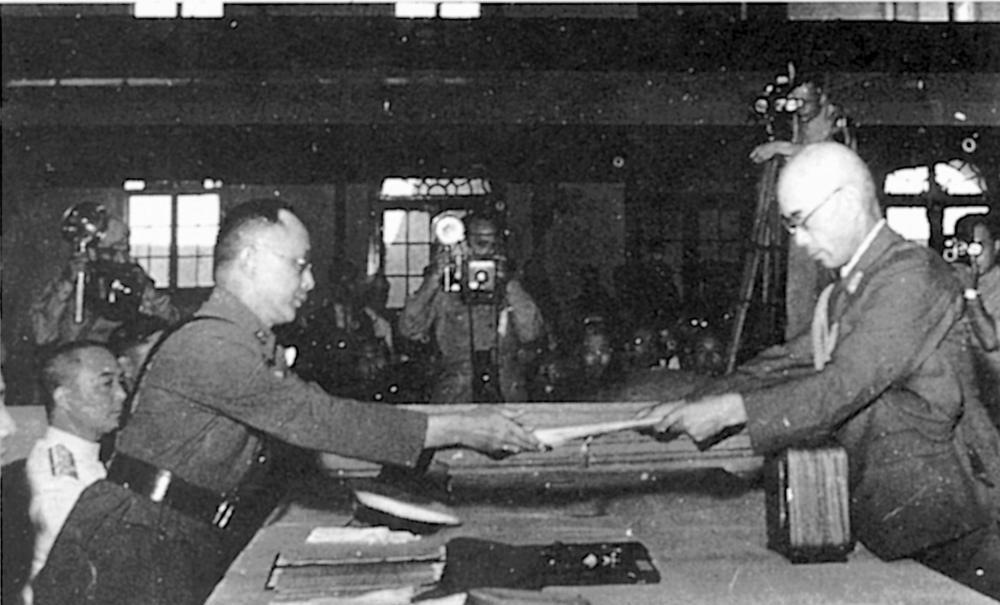
Japan surrendered
On August 15, 1945, the Emperor of Japan broadcast to the whole country by radio announcing Japan's acceptance of the Potsdam Proclamation and accepting the Demand for Unconditional Surrender from the Allies. Since then, the Second World War has come to an end, but Japan has surrendered after defeat, but the punishment for the numerous war crimes it has committed has only just begun. As a defeated country, Japan needed to pay war reparations to the victorious countries to make up for the damage caused by the war to other countries.
A surrender signed by Japan
As the country that suffered the longest and suffered the most damage from Japan's aggression in the entire Second World War, China deserves Japan's highest war reparations. However, because the decision-making power of the entire country in Japan at that time was in the hands of the United States, it did not have the right to make decisions, so many countries, including China, gave up compensation under the persuasion of the United States, which was also a place that the Chinese people had been unable to understand. Because China has just experienced a 14-year war of resistance against Japan, the whole country is devastated and in ruins, at this time to let Japan compensate, just like When Japan asked the Qing Dynasty for war reparations after the Sino-Japanese War to rapidly develop itself.
Japan invaded China in Nanjing
But the actual situation is not what you think, to know that the reason why Japan surrendered so simply, instead of doing the so-called "one hundred million jade crushing" resistance, in addition to the two atomic bombs of the United States and the destruction of the Kwantung Army, there are many secret agreements signed by the United States and Japan privately, and the content of these agreements has not been declassified so far. An indisputable fact is that after Japan's defeat in the war, the United States quickly began to station troops in Japan, and at the same time gained autonomy in Japan, and the reason why the United States tried to persuade other countries to give up reparations was obviously to let all this money flow into its own pockets.
Chiang Kai-shek and his wife worked with U.S. officials in China
At that time, the relationship between the Nationalist government and the United States was still very good, and Chiang Kai-shek, who was the supreme leader at the time, even agreed to the US proposal to give up Japan's war reparations, but after the founding of New China, it did not recognize the diplomatic relations and agreements signed by the Republic of China government, so for a long time we still insisted on demanding war reparations from the Japanese side. After the Second World War, the national economy of Japan has long been collapsed, and it is simply unable to repay the war reparations from so many countries, and the country is full of ruins and walls.
Post-war Japan
In 1972, with the improvement of Sino-Japanese relations, the then Japanese Prime Minister Kakuei Tanaka visited China, and the Chinese side officially agreed to japan to give up its war reparations for overtures and other reasons. If you think that the Chinese government is simply making overtures, you are dead wrong. We have also done so on the condition that the Japanese side, in order to express its gratitude, has decided to provide a 500 million yen interest-free loan to the mainland to develop the national economy.
Kakuei Tanaka visited China
In fact, in the face of the Chinese government's claims, the Japanese side was ready to use the weapons and equipment it held in its hands as collateral, but these things did not play much role for us. The 500 million loans given by Japan did play a key role in China's national development during the most difficult period of China's economy. 47 years have passed, and now it seems how wise the Chinese government's decision was at that time.
Author Major 005